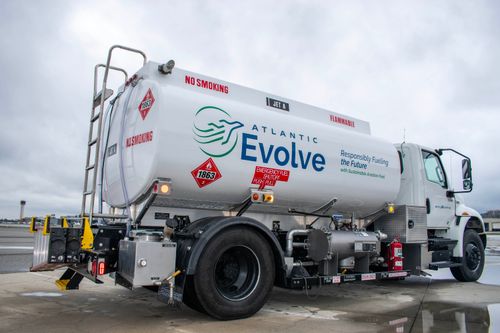SAF now available at Long Beach Airport

SOURCE: City of Long Beach, California
January 23, 2024
BY City of Long Beach, California
Long Beach Airport is proud to announce the availability of sustainable aviation fuel (SAF) for use by general aviation jets. This eco-friendly alternative is now offered through Atlantic Aviation, one of two fixed-base operators at the airport.
“I commend Atlantic Aviation for their proactive approach in adopting sustainable alternatives and working collaboratively with their business partners,’’ said Mayor Rex Richardson. “This initiative shows Long Beach’s commitment to sustainability and our collective efforts to build a future that is not just prosperous, but also environmentally responsible. This is a significant step towards our goal of a more sustainable future for Long Beach.”
Atlantic Aviation plans to maintain a supply of SAF volumes into the market to meet all customer demand.
Advertisement
Advertisement
“Atlantic is keenly aware of general aviation’s responsibility to combat rising emissions and work towards a cleaner environment,” said Eric Newman, VP of Commercial Strategy & Sustainability at Atlantic Aviation. “SAF is jet fuel, providing the most tangible near-term solution to make an impact on aviation emissions. Atlantic is committed to doing our part to make an impact with simple and reliable advancements across our network.”
The emissions reduction benefits of SAF are realized when the fuel is created via renewable feedstocks instead of crude oil, not when it is combusted. Neat—or unblended—SAF provides up to an 80 percent reduction in lifecycle greenhouse gas emissions compared to conventional jet fuel. Large general aviation and commercial aircraft use Jet A, which does not contain lead.
“Sustainability is a priority at Long Beach Airport, and collaboration with our tenants is an essential part in delivering greener options,” said Airport Director Cynthia Guidry. “This is a shared journey with our business partners at LGB, and together we are ensuring a more sustainable future for us all.”
Advertisement
Advertisement
Beyond expanding its services to include SAF for purchase, Atlantic Aviation is also redeveloping its complex to include other sustainably-minded projects at LGB. The company is finalizing a 30,000-square-foot hangar with additional office space that will be topped with a 1.1-million-kilowatt solar installation expected to support all electricity needs of the facility.
These greener fuel options and other sustainable developments at LGB, including a major solar installation at Aeroplex, contribute to LGB’s overall efforts toward one day becoming carbon neutral. To that end, the Airport was recently recertified by Airports Council International, the leading industry group for airports, with a Level 2 rating in the Airport Carbon Accreditation (ACA) Program. The ACA program helps airports identify, manage and reduce their carbon emissions.
LGB encompasses 1,166 acres and has three runways. It is unique among municipal airports for its diverse portfolio of Class A office buildings, retail, industrial facilities, a hotel and a municipal golf course. The Airport, recently named for a second consecutive year among the Top Ten airports in the country by Condé Nast Traveler magazine, currently offers service to 24 nonstop destinations around the nation, which is more than at any time in LGB’s nearly 100-year history.
Related Stories
Bangkok Airways Public Company Limited has officially announced the adoption of sustainable aviation fuel (SAF) on its commercial flights, reinforcing Thailand’s green aviation industry. The initiative took effect starting July 1, 2025.
Avalon Energy Group LLC and Sulzer Chemtech have signed a strategic alliance and partnership agreement to scale up the production of SAF. Under the agreement, Avalon has selected BioFlux technology for its portfolio of SAF projects.
Neste and DHL Express have strengthened their collaboration with the supply of 7,400 tons (9.5 million liters) of neat, i.e. unblended, Neste MY Sustainable Aviation Fuel to DHL Express at Singapore Changi Airport starting July 2025.
CoBank’s latest quarterly research report, released July 10, highlights current uncertainty around the implementation of three biofuel policies, RFS RVOs, small refinery exemptions (SREs) and the 45Z clean fuels production tax credit.
The U.S. Energy Information Administration maintained its forecast for 2025 and 2026 biodiesel, renewable diesel and sustainable aviation fuel (SAF) production in its latest Short-Term Energy Outlook, released July 8.
Upcoming Events










